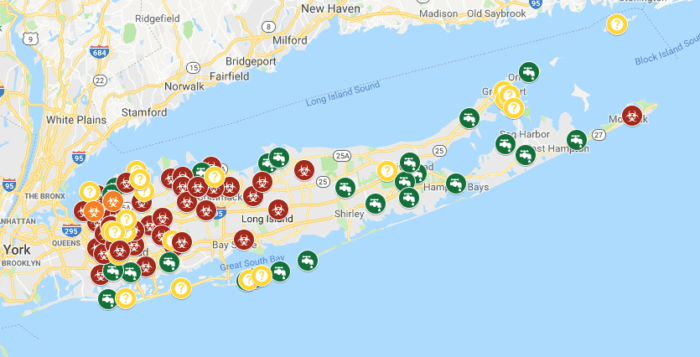Suffolk Water Authority Approves $20 Quarterly Fee to Clean Up 1,4-Dioxane

Suffolk County residents are being asked to reach into their wallets to help the water authority deal with the ongoing presence of 1,4-dioxane in local groundwater, which is the sole source of drinking water on Long Island.
The Suffolk County Water Authority announced Nov. 22 that the board approved a $20 quarterly fee added onto customers bills starting Jan. 1, 2020. The bill will go toward the cost of developing and operating treatment systems for filtering 1,4-dioxane and other perfluorinated compounds PFOS and PFOA in anticipation of New York State mandating such regulations.
“As we’ve said since state officials first began considering the regulation of 1,4-dioxane and perfluorinated compounds, we fully support taking whatever measures are necessary to ensure our customers continue to have a drinking water supply that is among the best in the country,” said SCWA CEO Jeffrey Szabo. “But, as we’ve also said, these regulations come at a high cost. We need the funds that will be raised by the quarterly fee to develop the treatment systems to meet the new standards.”
In an October presentation to Suffolk County legislators, SCWA proposed installing 31 new advanced treatment systems at a number of sites where the levels of 1,4-dioxane are higher than the state proposed limit, which is 1 part per billion.
Water officials and environmental activists have made 1,4-dioxane a topic of concern this year, pointing out that it is a likely carcinogen with links to liver and kidney damage after a lifetime of exposure.
If the state limits 1,4-dioxane to 1 part per billion and PFOS and PFOA at 10 parts per trillion, the water authority will have to put into service 56 new advanced oxidation process treatments, and 20 new granular activated carbon systems. The total cost for all these systems is expected to exceed $177 million over the next five to six years.
The $80 yearly charge is expected to cover those costs over time. The water authority services approximately 1.2 million Suffolk residents, including most parts of the North Shore.






